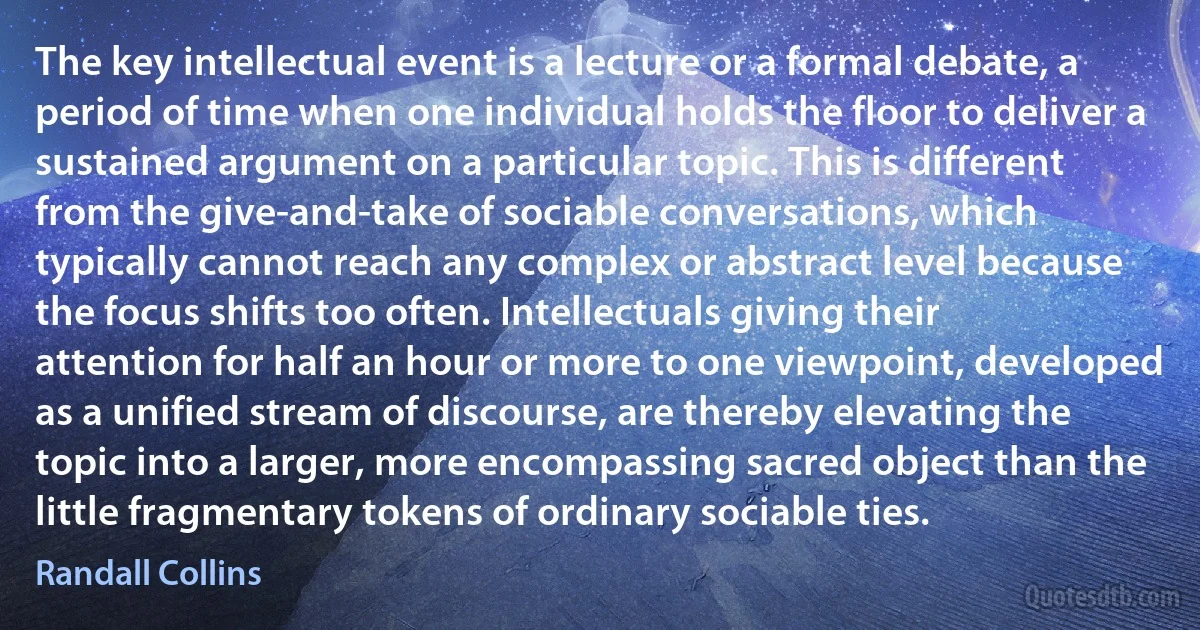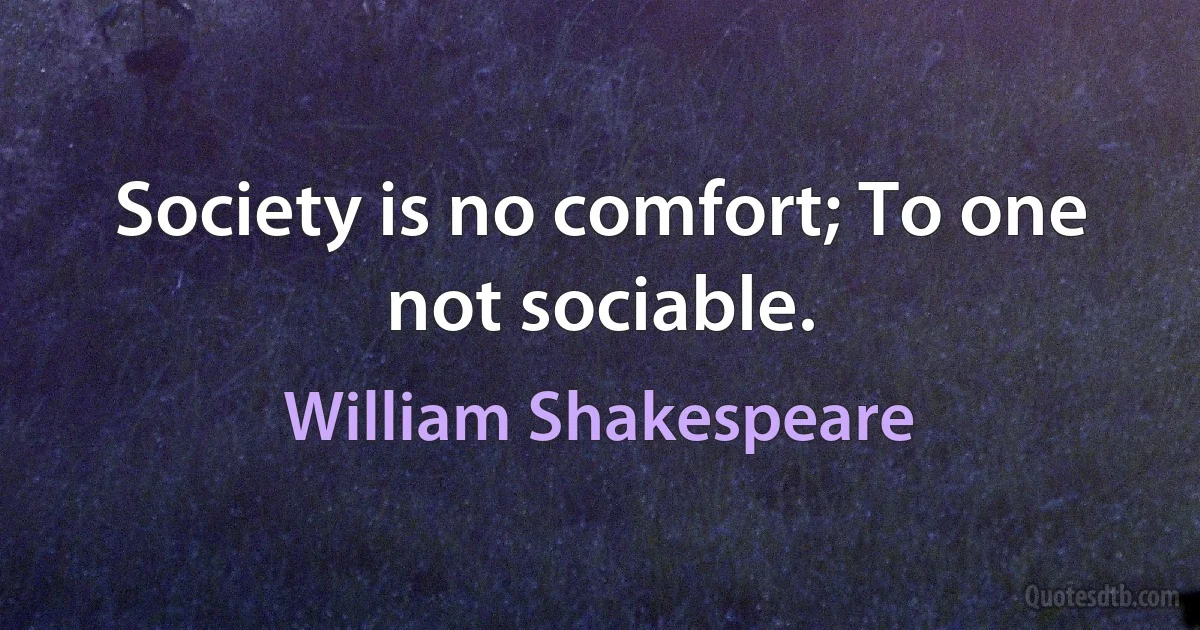Sociable Quotes - page 2
I only went along to youth theatre with a friend when I was young to try to make myself a bit more sociable. But the whole thing was quite sore; it really hurt me trying to get into drama school. It was a world I knew nothing about - it was very middle class; all that usual stuff. But I was young, determined, and I just went for it.

Anne-Marie Duff
In that college town, everyone went out with at least a little alcohol in their system. I wasn't an alcoholic, but drinking alcohol always helped me with being more confident and sociable. On weekend nights, I took a few shots from my vodka bottle and set out on walks around the town, desperately hoping that I would stumble across some opportunity to make friends. I often ended up sitting alone at some café, hoping girls would talk to me before I sobered up. No girl ever did. I then went back home to lie in my bed alone.

Elliot Rodger
Our most provident and glorious Creator so furnished countries with severall commodities that amongst all there might be sociable conversation; and, one standing in need of the other, all might be combined in a common league, and exhibite mutuall succours. This abundance of all countries in everything, and defect of every country in most things, maintaineth in all regions and every province a most strict combination. So that, as in the body of the little world, the head cannot say to the foot, nor the foot to the head, 'I stand in no need of thee:' so, in the body of the great world, Europe cannot say to Asia, nor Asia to Africke, 'I want not your commodities, nor am defective in that of which thou boastest of abundance.'

Peter Heylin
There is no doubt that some plant food, such as oatmeal, is more economical than meat, and superior to it in regard to both mechanical and mental performance. Such food, moreover, taxes our digestive organs decidedly less, and, in making us more contented and sociable, produces an amount of good difficult to estimate.

Nikola Tesla
According to the seventeenth-century way of thinking, an atheist was by definition a decadent. If there was no God (or, at least, no providential, rewarding-and-punishing God of the sort worshipped in all the traditional religions), the reasoning went, then everything is permitted. So a non-beliver would be expected to indulge in all manner of sensual stimulation... to lie, cheat, and steal...
Spinoza, according to all seventeenth-century interpreters, rejected all the traditional ideas about God; he was indesputably a heretic. Yet his manner of living was humble and apparently free of vice. Then, as now, the philosopher seemed a living oxymoron: he was an ascetic sensualist, a spiritual materialist, a sociable hermit, a secular saint. How could his life have been so good, the critics asked, when his philosophy was so bad?

Baruch Spinoza
Kolakowski, as we will see, has clearly depicted the religious life and the forms of community constructed by the cultured strata of the Dutch bourgeoisie. Spinoza lives in this world, with a vast network of simple and sociable friendships and correspondences. But for certain determinate strata of the bourgeoisie the sweetness of the cultured and sedate life is accompanied, without any contradiction, by an association with a capitalist Power ('potestas'), expressed in very mature terms. This is the condition of a Dutch bourgeois man. We could say the same thing for the other genius of that age, Rembrandt van Rijn. On his canvases the power of light is concentrated with intensity on the figures of a bourgeois world in terrific expansion. It is a prosaic but very powerful society, which makes poetry without knowing it because it has the force to do so.

Rembrandt
In the animal world we have seen that the vast majority of species live in societies, and that they find in association the best arms for the struggle for life: understood, of course, in its wide Darwinian sense - not as a struggle for the sheer means of existence, but as a struggle against all natural conditions unfavourable to the species. The animal species, in which individual struggle has been reduced to its narrowest limits, and the practice of mutual aid has attained the greatest development, are invariably the most numerous, the most prosperous, and the most open to further progress. The mutual protection which is obtained in this case, the possibility of attaining old age and of accumulating experience, the higher intellectual development, and the further growth of sociable habits, secure the maintenance of the species, its extension, and its further progressive evolution. The unsociable species, on the contrary, are doomed to decay.

Peter Kropotkin



